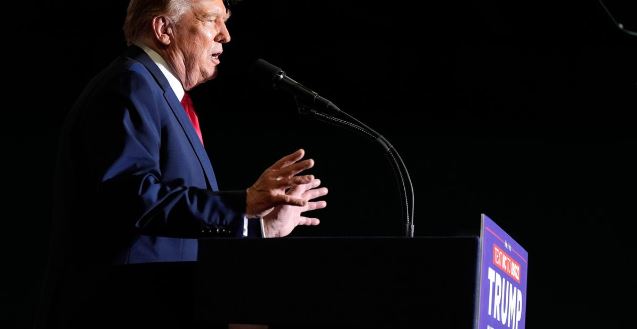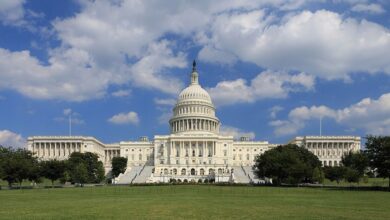Trump Brags About Ending Roe. No One’s Talking About It in Milwaukee.

Former President Donald Trump has recently taken credit for the Supreme Court’s decision to overturn Roe v. Wade, a landmark ruling that had guaranteed the constitutional right to abortion since 1973. Despite his bragging about this achievement, the topic seems to be conspicuously absent from discussions at the Republican National Convention (RNC) in Milwaukee.
Trump’s Boast
In various public statements and speeches, Trump has highlighted his role in reshaping the Supreme Court, which led to the conservative majority that ultimately overturned Roe v. Wade in June 2022. Trump’s appointment of three conservative justices—Neil Gorsuch, Brett Kavanaugh, and Amy Coney Barrett—was pivotal in the court’s decision to dismantle federal abortion protections.
“Without me, you wouldn’t have had Roe v. Wade overturned,” Trump has often claimed, presenting it as one of his administration’s significant accomplishments to rally his base.
Silence in Milwaukee
Despite Trump’s emphasis on this issue, the topic of abortion and the overturning of Roe v. Wade has not been prominently discussed at the RNC in Milwaukee. Several factors could explain this silence:
- Strategic Avoidance:
- The issue of abortion is highly polarizing. While it energizes a segment of the Republican base, it also alienates moderate voters and independents, especially suburban women, who are crucial for winning elections. By downplaying the topic, the party may be aiming to avoid alienating these key voter groups.
- Focus on Unity and Broader Issues:
- The RNC may be focusing on themes of unity, economic recovery, and national security, which have broader appeal. Emphasizing these issues can help present a cohesive and inclusive message, avoiding divisive topics that could fracture the party or the electorate.
- Potential Backlash:
- Since the overturning of Roe v. Wade, there has been significant mobilization and backlash from pro-choice advocates. Several states have enacted restrictive abortion laws, leading to public protests and legal battles. Highlighting this issue at the convention could reignite controversies and draw negative media attention.
Reactions and Implications
- Supporters:
- Among Trump’s staunch supporters, his role in ending Roe v. Wade is seen as a monumental victory. For conservative and evangelical voters, it is a fulfillment of a long-term goal, validating their support for Trump and his judicial appointments.
- Critics and Moderates:
- Conversely, many moderates and critics view the overturning of Roe v. Wade as a significant step backward for women’s rights. The lack of discussion at the RNC may be an attempt to navigate this contentious issue delicately, avoiding further alienation of these groups.
- Long-Term Impact:
- The Supreme Court’s decision has fundamentally changed the landscape of reproductive rights in the United States, with states now holding the power to regulate abortion. This development will likely remain a critical issue in upcoming elections, influencing voter behavior and political strategies.
While Trump continues to tout his role in overturning Roe v. Wade, the silence on this topic at the RNC in Milwaukee suggests a strategic decision to focus on less divisive issues. As the Republican Party aims to solidify its base and appeal to a broader electorate, the careful navigation of such a polarizing topic is essential. The long-term political and social ramifications of this landmark decision will continue to shape the national discourse in the years to come.




